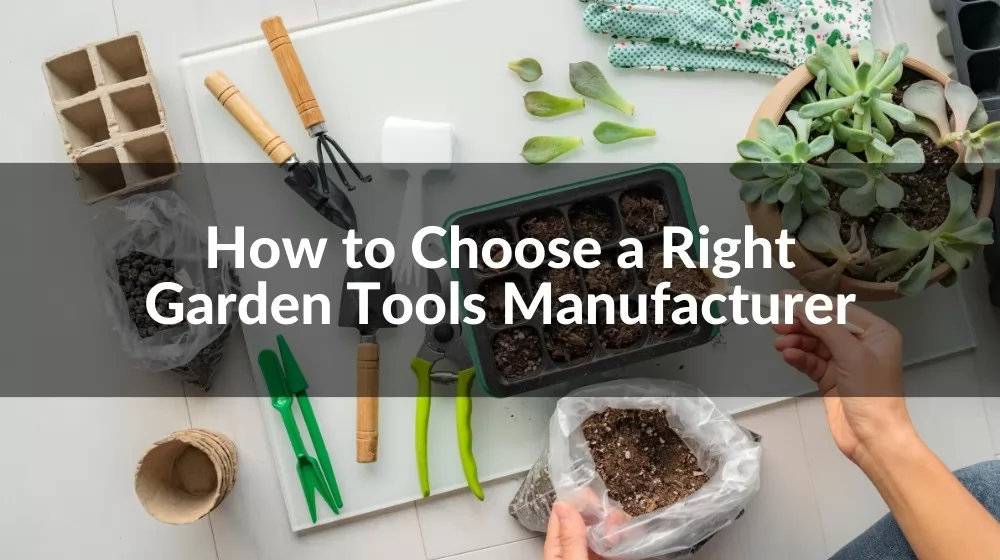
In the quest for a lush, thriving garden, the significance of choosing the right garden tools manufacturer and supplier cannot be overstated. The right tools are essential for efficient gardening, ensuring that every plant and flower receives the care it deserves. This guide offers comprehensive insights into selecting a manufacturer that not only meets but exceeds your gardening needs. From assessing quality and durability to exploring sustainability practices, we delve into the critical aspects that make a garden tools supplier stand out in the industry.
When it comes to nurturing a flourishing garden, the significance of partnering with the right garden tools manufacturer cannot be overstated. The quality, durability, and suitability of your garden tools play a pivotal role in the maintenance and development of your green space. Selecting an adept garden tools supplier is not just about purchasing products; it's about investing in a partnership that will enhance the overall gardening experience.
The right manufacturer brings more than just tools to the table. They provide innovation, quality assurance, and a deep understanding of gardening needs. Whether you're a commercial landscaper or a home gardening enthusiast, the right tools can make a significant difference in the efficiency and outcome of your gardening projects. They ensure that you're equipped with tools that not only ease the gardening process but also stand the test of time, saving you money and effort in the long run.
Additionally, a reliable garden tools supplier is a reservoir of expertise and advice. They can offer insights into the best tools for your specific needs, helping you to avoid costly mistakes and unnecessary purchases. In an industry where technology and techniques are constantly evolving, having a supplier who stays on the cutting edge can be an invaluable asset.
The first step in choosing the right garden tools manufacturer is to thoroughly understand the specific needs of your garden. Every garden is unique, with its own set of requirements determined by factors such as size, soil type, climate, and the types of plants being cultivated. Begin by evaluating the environment and the tasks that are regularly performed in your garden. This could range from basic maintenance like pruning and weeding to more specialized activities like aerating soil or harvesting.
Understanding your garden's needs also involves considering the long-term goals you have for your space. Are you aiming for a landscape that requires minimal maintenance, or are you cultivating a more complex garden with a variety of plants? The tools required for these different scenarios can vary significantly, making it crucial to align your tool selection with your gardening ambitions.
Once you have a clear understanding of your garden's requirements, the next step is to match these needs with the right tools. A knowledgeable garden tools supplier can be instrumental in this phase, providing guidance on which tools are best suited for your specific activities. For instance, ergonomic tools might be necessary if you spend long hours in the garden, or heavy-duty tools might be required for tougher landscaping tasks.
It's not just about the type of tool, but also the quality and durability. A reputable manufacturer will offer tools that are not only fit for purpose but also built to last. This ensures that you are investing in a product that will serve you well over time, offering both reliability and efficiency in your gardening endeavors.
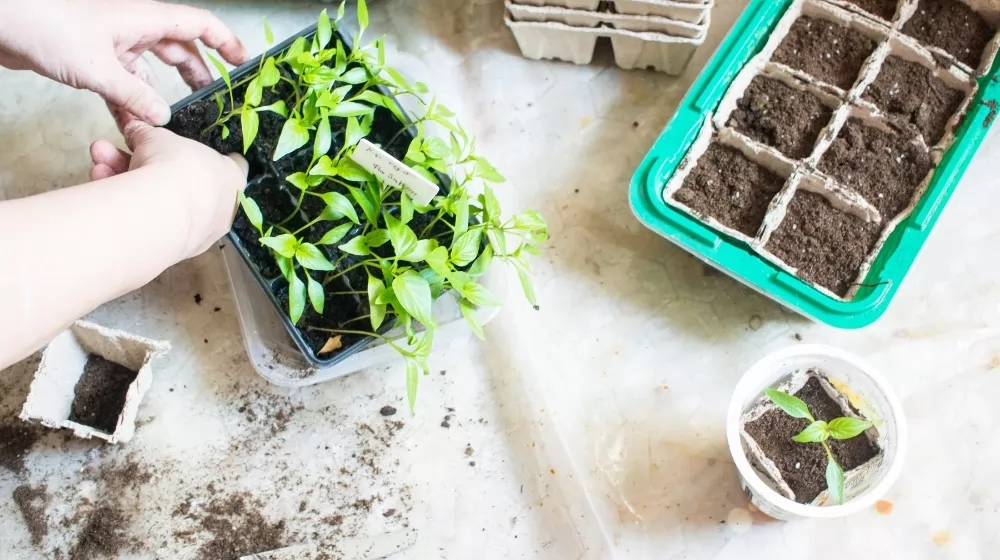
Understanding the materials used in garden tool manufacturing is crucial in choosing a quality garden tools manufacturer. The durability, functionality, and longevity of garden tools largely depend on the materials they are made from. Common materials include carbon steel, stainless steel, aluminum, and plastics. Each material has its own set of benefits and applications. For example, carbon steel is known for its strength and durability, making it ideal for heavy-duty tools like spades and hoes, while stainless steel is resistant to rust and corrosion, perfect for tools exposed to moisture.
Additionally, the choice of handle material, such as wood, metal, or rubber, also plays a significant role in the comfort and ease of use of the tool. Ergonomic designs using softer materials can reduce fatigue and are ideal for gardeners who spend extended periods working in their gardens.
The manufacturing process of garden tools is another aspect to consider when selecting a garden tools supplier. This process typically involves several steps, starting from the design and prototyping to material selection, forging or casting, machining, assembling, and finishing. A quality manufacturer employs advanced techniques and rigorous quality control measures throughout the process to ensure that each tool meets high standards of performance and durability.
The process often begins with a detailed design phase, where the specific needs of gardeners are considered. Then, the best materials are selected based on the tool's intended use. Forging or casting shapes the tool, followed by machining to refine the details. Finally, assembly and finishing touches are applied, which might include sharpening blades, attaching handles, and applying protective coatings.
When selecting a garden tools manufacturer, durability and material quality are paramount. High-quality materials not only extend the lifespan of the tools but also ensure efficient performance. Look for manufacturers who source premium-grade steel for blades and robust materials for handles. The use of corrosion-resistant metals and coatings is also a key factor in prolonging the life of the tools, especially when they are frequently exposed to soil, moisture, and varying weather conditions.
The construction of the tools is just as important as the materials used. A well-constructed tool should feel solid and balanced in your hand, with no loose components or weak joints. This solidity is a direct indicator of the tool's ability to withstand regular use and the rigors of gardening tasks.
Ergonomic design is another critical factor to consider. The best garden tools suppliers understand that comfort in use is essential, especially for tools that are used frequently or for prolonged periods. Ergonomic features include well-designed grips, balanced weight distribution, and tools shaped to minimize strain on the body. These design considerations can significantly reduce the risk of injury and fatigue, making gardening a more enjoyable and sustainable activity.
The design should also take into account the efficiency of the tool. A well-designed garden tool will not only be comfortable to use but will also be effective in its intended function, whether it's cutting, digging, or pruning.
Safety is an aspect that cannot be overlooked in garden tool manufacturing. Reputable manufacturers incorporate safety features into their designs to prevent accidents and injuries. These can include non-slip grips, safety locks on cutting tools, and blunt edges on digging tools to avoid accidental injuries. Additionally, instructions and guidelines on the proper use and maintenance of the tools are often provided to ensure safe operation.
Regular safety checks and maintenance of garden tools are also encouraged by responsible manufacturers. This includes checking for any signs of wear or damage, ensuring that cutting tools remain sharp and effective, and storing tools safely when not in use. By choosing a manufacturer that prioritizes safety, you are investing in not just the quality of your garden tools, but also in the wellbeing of those who use them.
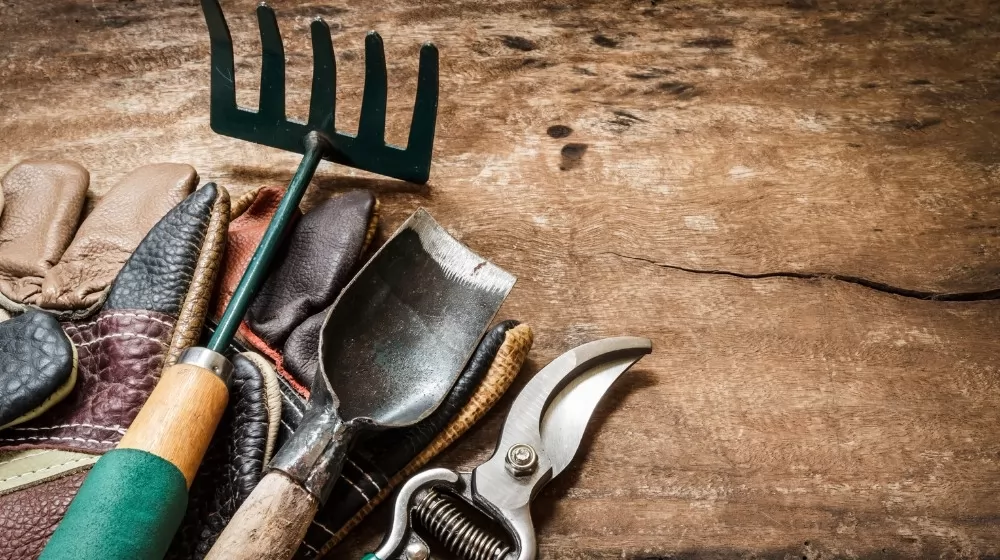
A diverse range of tools is a hallmark of a leading garden tools manufacturer. The array of tools available should cater to various gardening tasks, from basic maintenance to specialized landscaping activities. An extensive selection offers gardeners the flexibility to choose tools that best suit their specific needs. Look for manufacturers that offer a comprehensive range of products, including hand tools like pruners and trowels, as well as larger equipment like spades, rakes, and shears.
The variety in a manufacturer’s lineup can also reflect their expertise and commitment to catering to a wide spectrum of gardening requirements. This diversity ensures that both amateur gardeners and professional landscapers can find the tools they need to efficiently carry out their gardening projects.
In addition to a wide range of standard tools, top-tier garden tools suppliers often offer specialty tools and customization options. These specialty tools are designed for specific tasks or conditions and can significantly enhance the efficiency and effectiveness of gardening work. Customizations might include tools tailored for different hand sizes, adjustable lengths for better reach, or specialized blades for unique types of plants.
Offering customizations reflects a manufacturer's dedication to meeting the unique needs of each gardener. It shows an understanding that gardening is not a one-size-fits-all activity and that personalization can greatly improve the gardening experience. By providing these specialized options, manufacturers demonstrate their commitment to innovation and customer satisfaction.
The historical performance of a garden tools manufacturer is a critical indicator of their reliability and quality. Examining a manufacturer's track record can provide insights into their commitment to quality, innovation, and customer satisfaction. Long-standing manufacturers often have a wealth of experience and a proven ability to adapt to market changes and technological advancements. Investigating the history of product recalls, awards, or industry recognitions can also offer valuable perspectives on a manufacturer's standing and expertise in the field.
Additionally, the evolution of a manufacturer's product range over time can be a testament to their growth and responsiveness to customer needs. A manufacturer that continuously refines and expands its product offerings is likely committed to staying at the forefront of garden tool innovation.
In today’s digital age, brand reputation and customer reviews are incredibly influential. They offer unfiltered insights into a manufacturer’s product quality, customer service, and overall reliability. Positive reviews and testimonials from satisfied customers can be a strong endorsement of a brand. Look for feedback that highlights the longevity, effectiveness, and value of the tools, as well as the company's responsiveness to customer inquiries and after-sales support.
Conversely, a pattern of negative reviews can be a red flag. Pay attention to common issues raised by customers, such as durability concerns or poor customer service. Remember, however, to take a balanced view, as not all reviews may be representative of the overall brand quality.
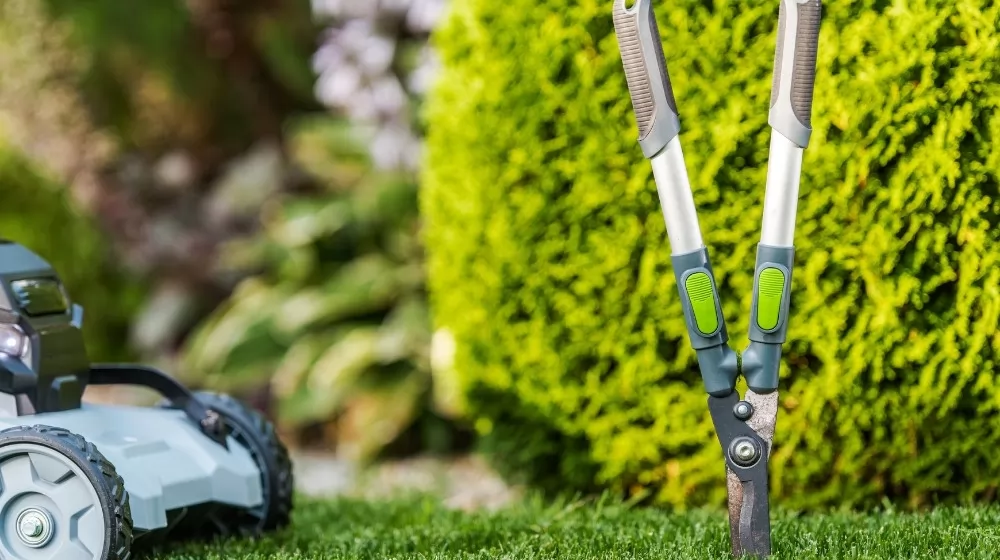
Industry certifications are a significant aspect to consider when choosing a garden tools manufacturer. These certifications are a testament to a manufacturer's commitment to quality and adherence to industry standards. Certifications such as ISO (International Organization for Standardization) indicate that the manufacturer meets global standards for quality management and manufacturing processes. Other certifications might pertain to environmental management, health and safety standards, or specific product quality standards.
Possessing such certifications is not just about compliance; it reflects a manufacturer's dedication to excellence and continuous improvement. It assures customers that the products they are purchasing are manufactured under stringent quality controls and ethical practices.
Compliance with international standards is another crucial factor in selecting a garden tools supplier. These standards ensure that products are safe, reliable, and of high quality. Compliance can include a range of criteria, from material selection and manufacturing processes to environmental impact and user safety.
Manufacturers who adhere to these standards are not only demonstrating their commitment to quality but are also showing their dedication to meeting the needs and expectations of a global customer base. This compliance is particularly important for businesses operating in multiple markets, as it ensures that their products meet diverse regulatory requirements and customer expectations.
Understanding the pricing models of garden tools manufacturers is crucial for making an informed purchasing decision. Pricing in this industry can vary widely, influenced by factors such as material quality, manufacturing processes, brand reputation, and additional services offered. Some manufacturers may offer premium prices for high-quality, durable tools, while others might focus on providing more affordable options with varying degrees of quality.
It’s important to delve into what each pricing model offers. A higher price might include added benefits such as extended warranties, superior customer service, or innovative tool designs. On the other hand, lower-priced options might be more basic but still meet standard gardening needs. Understanding these nuances will help you choose a supplier that aligns with your budget and quality expectations.
Finding the right balance between cost and quality is a key consideration when selecting a garden tools supplier. Investing in high-quality tools can be cost-effective in the long run, as these tools generally offer greater durability and performance. This reduces the need for frequent replacements, saving money over time. However, it's also important to consider the specific gardening tasks and frequency of use. For occasional or light gardening work, more affordable tools might be sufficient and a more practical choice.
The decision should be based on a careful assessment of your gardening needs, the expected lifespan of the tools, and the overall value they provide. In essence, the goal is to invest in tools that offer the best return on investment, balancing initial costs with long-term benefits and satisfaction.
In today's eco-conscious world, the sustainability of manufacturing practices is a crucial factor to consider when choosing a garden tools manufacturer. Sustainable practices include minimizing waste, using renewable energy sources, and implementing efficient manufacturing processes that reduce environmental impact. These practices not only demonstrate a commitment to protecting the environment but also reflect a forward-thinking approach to business operations.
Manufacturers who prioritize sustainability often employ innovative techniques to reduce their carbon footprint, such as recycling materials, using eco-friendly packaging, and investing in energy-efficient machinery. By opting for a manufacturer that embraces sustainable practices, customers can be confident that they are contributing to a healthier planet.
Ethical sourcing of materials is another critical aspect of responsible garden tool manufacturing. This involves procuring materials in a way that is socially and environmentally responsible. Ethical sourcing ensures that the materials used in garden tools are obtained through fair labor practices and with minimal environmental degradation.
A strong warranty from a garden tools manufacturer is a sign of confidence in the quality and durability of their products. When evaluating a manufacturer, it's important to thoroughly understand the terms and conditions of their warranty. This includes the duration of the warranty, what is covered (and what is not), and the process for claiming the warranty. Some manufacturers may offer a limited warranty that covers defects in materials and workmanship, while others might provide a more comprehensive warranty that includes wear and tear or accidental damage.
The warranty's length can also be a good indicator of the product's expected lifespan. A longer warranty period often suggests that the manufacturer is confident in the tool’s ability to perform over time. Always read the fine print to understand your rights and responsibilities as a consumer to fully benefit from the warranty offered.
After-sales support is an essential aspect of customer service that significantly enhances the overall experience of purchasing garden tools. A reliable garden tools supplier should offer robust after-sales services, including customer support for any queries or issues, maintenance tips, and services for repair or replacement of parts. This support can be crucial in ensuring that your tools remain in good working condition and any issues are resolved promptly.
Effective after-sales support also includes providing customers with comprehensive manuals, access to online resources, and responsive customer service channels. These resources can be invaluable for understanding the proper use and maintenance of your tools, ultimately extending their lifespan and ensuring optimal performance.
Bespoke design services are a premium offering that some garden tools manufacturers provide to meet the specific needs of their clients. These services allow for the customization of tools to fit unique requirements or preferences, whether it's adapting the size, shape, or functionality of a tool. Bespoke designs can be particularly beneficial for professional landscapers or gardeners with specific needs that standard tools cannot meet.
Engaging in bespoke design services often involves a collaborative process where the manufacturer works closely with the client to understand their requirements and create a tailor-made solution. This personalized approach not only ensures that the tools are perfectly suited to the tasks at hand but also can lead to innovations in garden tool design.
Branding and customization opportunities offered by garden tools suppliers can be an effective way for businesses to differentiate themselves. This can include custom branding on tools, such as logos or company colors, which can be an excellent marketing tool for businesses in the landscaping and gardening industry.

Co-branding opportunities with a garden tools manufacturer can offer numerous benefits for businesses. This strategy involves partnering with manufacturers to create products that feature the branding of both parties. Co-branding can be an effective way to leverage the strengths and market presence of both brands, potentially leading to increased visibility, customer trust, and market reach.
Such collaborations can also lead to innovative product development, combining the expertise of both entities to create unique and high-quality garden tools. This approach can be particularly advantageous for companies looking to establish themselves in the gardening sector or expand their existing product line.
Strategic partnerships within the garden tools industry can take various forms, from supply chain collaborations to joint marketing campaigns. These partnerships can help businesses in achieving economies of scale, improving product offerings, and enhancing market penetration. By aligning with other industry players, a garden tools supplier can tap into new customer bases, share industry knowledge, and collaborate on technological advancements.
The process of choosing the right garden tools manufacturer begins with creating a shortlist of potential suppliers. This list can be formed based on a variety of factors, including product range, quality, pricing, brand reputation, and commitment to sustainability and ethics. Sources for finding these manufacturers can include industry directories, trade shows, online searches, and recommendations from industry peers. It’s crucial to consider a diverse range of manufacturers to ensure that the shortlist encompasses a variety of options, catering to different needs and preferences.
When creating this list, it’s also valuable to take note of any initial impressions about the company’s professionalism, customer service, and responsiveness, as these factors can significantly impact the long-term supplier relationship.
The final step in selecting a garden tools supplier involves evaluating each option on your shortlist against a set of predetermined criteria. These criteria might include the quality and range of products, pricing and value for money, customer reviews and brand reputation, warranty and after-sales support, as well as any additional services like customization options or sustainable practices.
It's important to weigh each criterion according to its relevance to your specific needs. For example, if you’re highly concerned about environmental impact, greater weight should be given to manufacturers with strong sustainable practices. Gathering as much information as possible through product samples, customer testimonials, and direct communication with the manufacturers can aid in making an informed and well-rounded decision.
Selecting the right garden tools manufacturer is pivotal in shaping the success of your gardening journey. It's about finding a partner who understands the nuances of gardening and can provide tools that are as durable as they are efficient. As we conclude our guide, we want to highlight Linkwin, a leading Chinese manufacturer known for its exceptional quality garden tools. With a commitment to excellence, innovation, and customer satisfaction, Linkwin stands as a beacon of trust and reliability in the garden tools manufacturing industry. Explore their extensive range and experience the difference that quality and expertise bring to your gardening endeavors.
Read More:
When selecting a garden tools manufacturer, consider factors such as the quality and range of products, the materials used, manufacturing processes, brand reputation, pricing, warranty terms, and their commitment to environmental and ethical practices. It's also important to evaluate their customer service and after-sales support.
Assessing the quality of garden tools involves checking the materials used (like high-grade steel or durable plastics), the sturdiness of construction, ergonomic design, and the presence of any certifications or quality marks. Reading customer reviews and testing the tools, if possible, can also provide valuable insights.
Choosing a local manufacturer can offer advantages like better alignment with regional gardening needs, potentially lower shipping costs, faster delivery times, and easier communication. It also supports the local economy and can be more sustainable due to shorter transportation distances.
Environmental considerations are crucial in today’s context. Opting for a manufacturer that employs sustainable practices, such as using eco-friendly materials and minimizing waste, reflects a commitment to environmental stewardship. This choice not only reduces your ecological footprint but also aligns with a growing global demand for sustainable products.
If you encounter issues with your garden tools post-purchase, first consult the warranty and return policy of the manufacturer or supplier. Contact their customer service to report the issue and seek guidance. Keep any receipts and documentation handy, as this will facilitate a smoother resolution process, whether it involves repair, replacement, or refund.






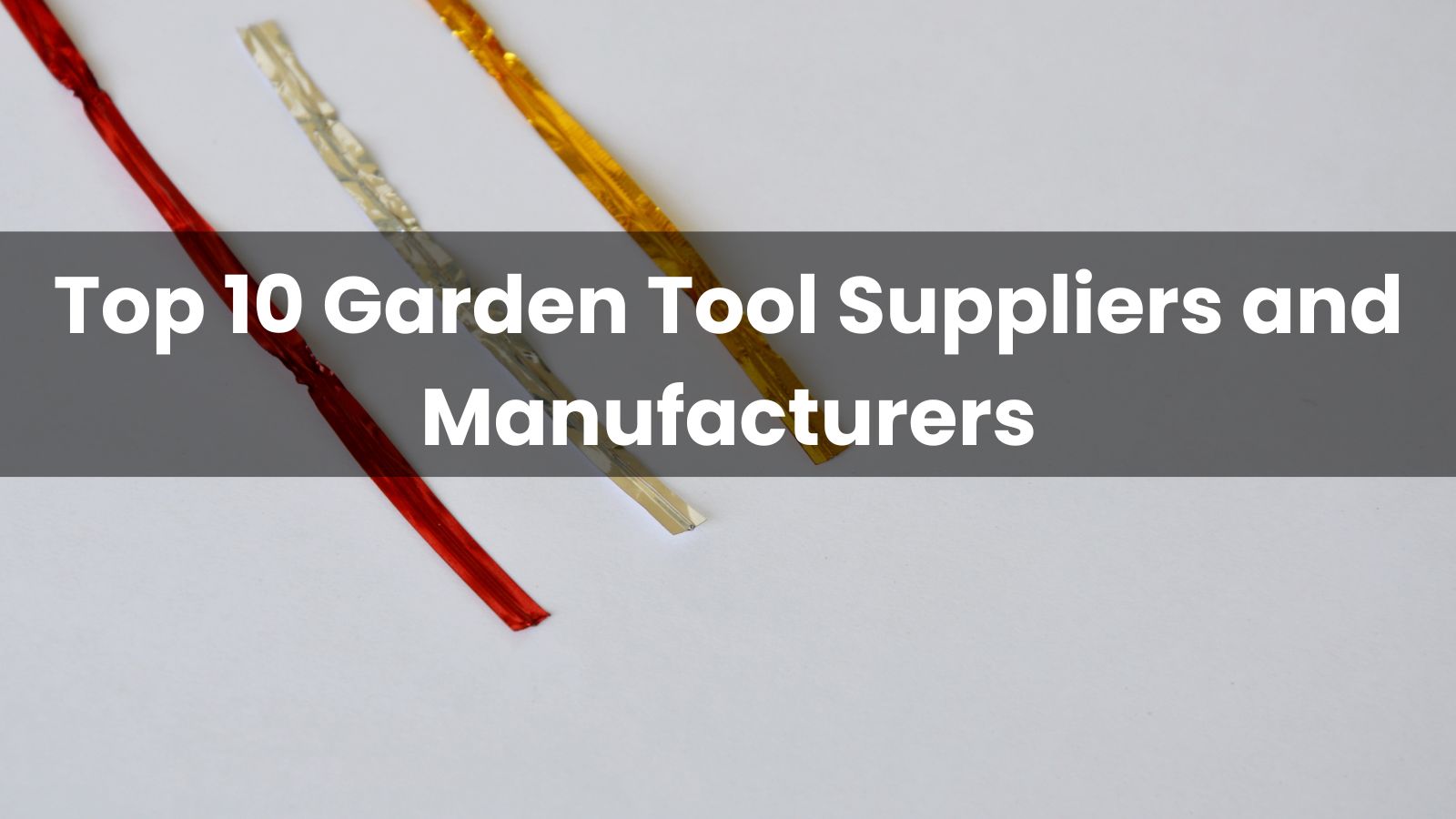




We use cookies to make the website work, to provide advanced features, social media and traffic analysis, and we use analytics and third-party advertising cookies. If you choose to click "Deny All", you will retain the default setting of not allowing the use of cookies or other tracking tools other than technical tools.

